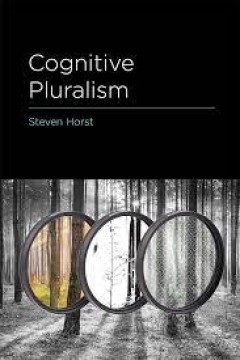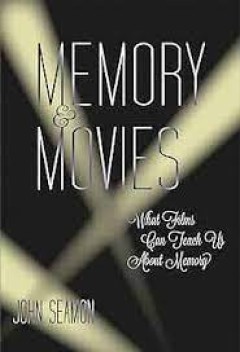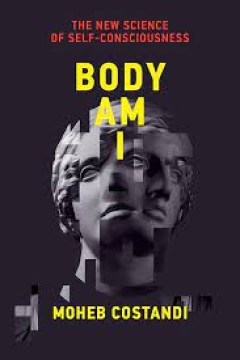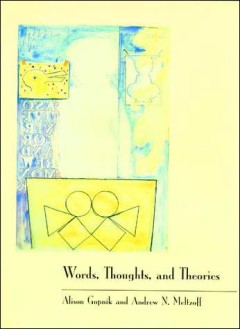Filter by

Cognitive pluralism
An argument that we understand the world through many special-purpose mental models of different content domains, and an exploration of the philosophical implications. Philosophers have traditionally assumed that the basic units of knowledge and understanding are concepts, beliefs, and argumentative inferences. In Cognitive Pluralism, Steven Horst proposes that another sort of unit--a mental mo…
- Edition
- -
- ISBN/ISSN
- 0262333627
- Collation
- 1 online resource (xii, 360 pages) :illustrations, maps
- Series Title
- -
- Call Number
- -

Memory and Movies: What Films Can Teach Us about Memory
"In the movie Slumdog Millionaire, the childhood memories of a young game show contestant trigger his correct answers. In Memento, the amnesiac hero uses tattoos as memory aids. In Away from Her, an older woman suffering from dementia no longer remembers who her husband is. These are compelling films that tell affecting stories about the human condition. But what can these movies teach us about…
- Edition
- -
- ISBN/ISSN
- 9780262330657
- Collation
- 1 online resource (xxv, 291 pages)
- Series Title
- -
- Call Number
- -

Body Am I: The New Science of Self-Consciousness
"Costandi explains the neuroscience behind how we view our selves and our bodies, drawing from neurological studies on our sense of agency and free will, the neural correlates of mental representations, mirror neurons, and how the brain perceives timing and sensory consequences. He explores case studies of amputees with phantom limb syndrome, people with Body Integrity Identity Disorder (who ha…
- Edition
- -
- ISBN/ISSN
- 9780262368711
- Collation
- 1 online resource
- Series Title
- -
- Call Number
- -

Words, thoughts, and theories
"A Bradford book."OCLC-licensed vendor bibliographic record.
- Edition
- -
- ISBN/ISSN
- 9780262274098
- Collation
- 1 online resource (xvi, 268 pages).
- Series Title
- -
- Call Number
- -

The entangled brain :how perception, cognition, and emotion are woven together
"A general overview of the systems neuroscience approach written by a leading figure in the field"--OCLC-licensed vendor bibliographic record.
- Edition
- -
- ISBN/ISSN
- 9780262372107
- Collation
- 1 online resource
- Series Title
- -
- Call Number
- -

Snapshots of the mind
"A collection of short, accessible essays by one of the leading practitioners of Naturalistic Decision Making"--OCLC-licensed vendor bibliographic record.
- Edition
- -
- ISBN/ISSN
- 0262371510
- Collation
- 1 online resource.
- Series Title
- -
- Call Number
- -

Musical bodies, musical minds :enactive cognitive science and the meaning of …
"An attempt to explain musical cognition from the perspective of embodied cognitive science. Emphasizes interactive sense-making with the environment rather than internal neural mechanisms"--OCLC-licensed vendor bibliographic record.
- Edition
- -
- ISBN/ISSN
- 0262370336
- Collation
- 1 online resource.
- Series Title
- -
- Call Number
- -

The mindconsciousness, prediction, and the brain
An accessible and engaging account of the mind and its connection to the brain. The mind encompasses everything we experience, and these experiences are created by the brain--often without our awareness. Experience is private; we can't know the minds of others. But we also don't know what is happening in our own minds. In this book, E. Bruce Goldstein offers an accessible and engaging account o…
- Edition
- -
- ISBN/ISSN
- 9780262358774
- Collation
- 1 online resource
- Series Title
- -
- Call Number
- -

Qualitative representations :how people reason and learn about the continuous…
An argument that qualitative representations -- symbolic representations that carve continuous phenomena into meaningful units -- are central to human cognition. In this book, Kenneth Forbus proposes that qualitative representations hold the key to one of the deepest mysteries of cognitive science: how we reason and learn about the continuous phenomena surrounding us. Forbus argues that qualita…
- Edition
- -
- ISBN/ISSN
- 9780262349802
- Collation
- 1 online resource (xvi, 424 pages)
- Series Title
- -
- Call Number
- -

A natural history of natural theology :the cognitive science of theology and …
"Questions about the existence and attributes of God form the subject matter of natural theology, which seeks to gain knowledge of the divine by relying on reason and experience of the world. Arguments in natural theology rely largely on intuitions and inferences that seem natural to us, occurring spontaneously--at the sight of a beautiful landscape, perhaps, or in wonderment at the complexity …
- Edition
- -
- ISBN/ISSN
- 0262326833
- Collation
- 1 online resource (xvii, 246 pages)
- Series Title
- -
- Call Number
- -
 Computer Science, Information & General Works
Computer Science, Information & General Works  Philosophy & Psychology
Philosophy & Psychology  Religion
Religion  Social Sciences
Social Sciences  Language
Language  Pure Science
Pure Science  Applied Sciences
Applied Sciences  Art & Recreation
Art & Recreation  Literature
Literature  History & Geography
History & Geography